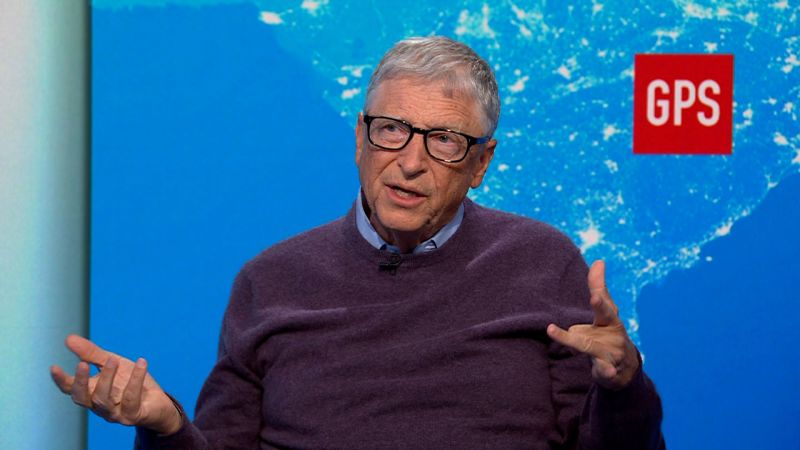In a recent exchange of criticisms, Microsoft co-founder Bill Gates has publicly rebuked tech mogul Elon Musk for his role in significant cuts to U.S. government spending, particularly those affecting the U.S. Agency for International Development (USAID). Gates asserts that these reductions could result in millions of deaths globally, as they impair international aid efforts. This disapproval stems from actions taken during the Trump administration, where attempts were made to dismantle USAID’s foreign assistance initiatives, an act Musk claimed was akin to feeding the agency to a “woodchipper.”
As a result of these spending cuts, many non-profit organizations have found themselves struggling due to canceled contracts or irregular payment schedules. Though some of these contracts have been reinstated, aid organizations have cautioned of the dire consequences that could follow due to reduced funding. Gates emphasized that such drastic measures should not have been implemented and advocates for reinstating funding to ensure that global health programs maintain their operations.
During an interview with CNN’s Fareed Zakaria, Gates commented on Musk’s intentions when he entered public government service. He suggested that if Musk’s initial goal was to use his expertise to make government more efficient, discussing efficiency is commendable; however, the subsequent cutting of essential aid programs was entirely unexpected and tragic. Gates stressed that the state of global health has reached an emergency point due to spending reductions by not just the U.S. but also by European governments, marking a significant setback in advancements made over previous decades.
Alongside this, Gates recently announced a proposal to donate $200 billion—including virtually all his personal wealth—through the Bill and Melinda Gates Foundation over the course of the next 20 years before ceasing its operations. This decision, which builds upon previous plans, is fueled by his worry that progress in improving global health has begun to stagnate or regress. Gates highlighted that decisions made during Musk’s tenure in the government have worsened this troubling situation.
He conveyed his disbelief at the premise that a $7 trillion budget could be shrunk by $2 trillion in a mere two months. This statement reveals his concern that cuts to aid are often directed at the most vulnerable populations, allowing them to be mischaracterized and dismissed more easily than domestic programs that have more direct political ramifications. Gates pointed out Musk’s erroneous claims, such as the assertion that the U.S. government spends $50 billion on condoms for Gaza, assertions that later proved to be untrue. Gates took aim at Musk’s disparaging remarks about USAID workers, whom Musk labeled with accusations that Gates vehemently contradicted, referring to aid workers as heroes rather than radicals.
Gates further illustrated that the employees of USAID represent the compassionate face of America to populations in need, stating that they are instrumental in monitoring global health crises and potential pandemics. He called it deeply unfair to tarnish their reputation, emphasizing that aside from military personnel, they perform one of the most honorable services by aiding those who need health support to survive.
The Gates Foundation has achieved an impressive track record, having channeled over $100 billion into initiatives targeting serious health issues across the globe since its inception in 2000, thus collaborating with government entities and non-profits alike. Gates remarked on Musk’s expertise in various fields, acknowledging his brilliance while arguing that global health is not one of Musk’s focal points. He insisted that spending cuts of such magnitude could lead to millions of death, categorically stating it is a grave mistake.
Following remarks made to the Financial Times, Gates described Musk’s cuts as actions that could jeopardize the lives of the world’s poorest children, highlighting the gravity of the situation. While a response from Musk’s team regarding Gates’ criticisms has not been forthcoming, tensions are not new between the two billionaires. In a previous encounter aimed at promoting philanthropy, Musk labeled Gates negatively when discussions did not yield the intended results.
In addition to his critique of Musk, Gates raised broader concerns regarding the Trump administration’s tariff policies and how they contribute to economic unpredictability, suggesting they could drastically impact American businesses already facing upheaval due to the rise of artificial intelligence. Gates concluded his concerns by stressing the impact of uncertainty stemming from these governmental policies, emphasizing the need for stability in regulations to facilitate long-term planning in business operations.



